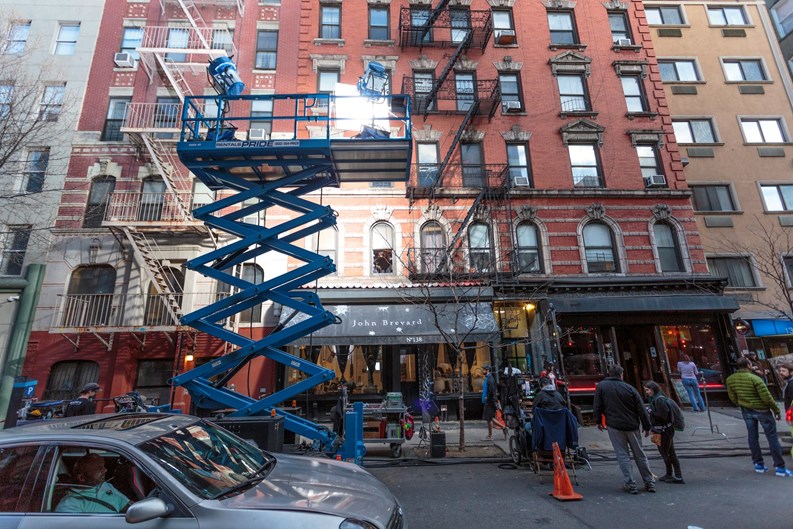Perhaps you’ve watched an episode of Law & Order, or one of the many other shows shot in and around the New York City metro, and wondered how the producers select buildings for location shoots. Maybe you’ve even wondered whether your building could have a future as the setting for a series, or a feature film. What a cool way to put your co-op or condo on the map, and a tidy little chunk of change into the reserve fund, right? Well, maybe - but like so much in life, it’s not quite that simple. While many TV and movie production companies are actively scouting locations for filming, there’s a lot to consider before offering up your building.
The Reality of the Fantasy
“Many boards of cooperatives and condominiums we represent have called on us over the years to review and negotiate agreements with television, movie and other companies wishing to film scenes at their buildings,” says Dennis Greenstein, of counsel at Seyfarth Shaw, an international law firm with offices in New York. “While boards may be tempted to quickly accept offers they receive from these companies as ‘easy money,’ it is important for boards to consult with their counsel before entering into agreements for the use of their buildings, and carefully consider the potential safety, inconvenience, and liability issues that may arise.”
Ingrid Manevitz, a partner at Seyfarth Shaw, has represented co-op and condominium clients in TV and movie location agreements many times. “The board must strongly consider the effects of the filming on the community,” she cautions. “Any agreement should include provisions and clauses for the following: the form of the agreement, the term of the agreement, payments and security deposits, attorney’s fees, current condition of the property as observed by the TV and/or movie company, and any possible maintenance, repairs and replacements, insurance and indemnity, compliance with community rules - even bathroom use.”
The Devil is in the Details
Both Greenstein and Manevitz suggest the agreement should be a license agreement, not a lease agreement. “Among other reasons,” they say, “the remedies for a breach by the television/movie company - the ‘licensee’ - are more favorable for the cooperative/condominium as the ‘licensor.’ The agreement should include a specific term, and that term should include the dates as well as the hours of each day that the licensee may physically be present on the co-op’s or condo’s premises. The term also should account for and include all preparation and delivery of equipment, sets, and property, as well as shoots, wrap, cleanup, repair and replacement at the building. In addition, the agreement should contemplate that the licensee may need additional full and/or partial days, and require the licensee to pay the co-op or condo additional fees for those extra days and/or hours.”
The attorneys also recommend that the co-op or condo insist upon being paid the full license fee up front, upon the signing of the agreement. At signing, the board should also require the licensee to pay a security deposit to be held by the corporation or association (or its counsel) until the term of the agreement is concluded. They also strongly advise conducting a joint inspection of the building to determine that there is no damage or loss to any property or furnishings.
Finally, with regard to the physical space, says Greenstein, “The licensee must be obligated to restore the premises to pre-use condition on or promptly after the termination date, and at their sole cost and expense. The licensee’s restoring of the premises should be defined to include removing all of the licensee’s equipment, materials and other property; repairing/replacing any damage it caused; vacating and surrendering the premises; and restoring any furnishings belonging to the co-op/condo or it residents that were temporarily removed from the premises in connection with the licensee’s use.”
As mentioned earlier, any agreement must also address very basic - and necessary - practical considerations, like restroom access during the production. Is there an existing bathroom somewhere in the building that can be used by cast and crew members? If not, where can the licensee place temporary bathroom facilities? It’s also critical that the production staff understand and abide by not only the agreement, but also the building’s house rules. Provisions for such must be included in any agreement.
Lending your property for location shoots can be a profitable enterprise, on either a one-off or continuing basis. But, as with everything in a shared interest community, your board and attorney must take all steps to protect residents and the building itself from damage and misuse. That’s where a formal, ironclad license agreement comes in.







Leave a Comment